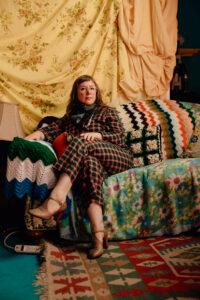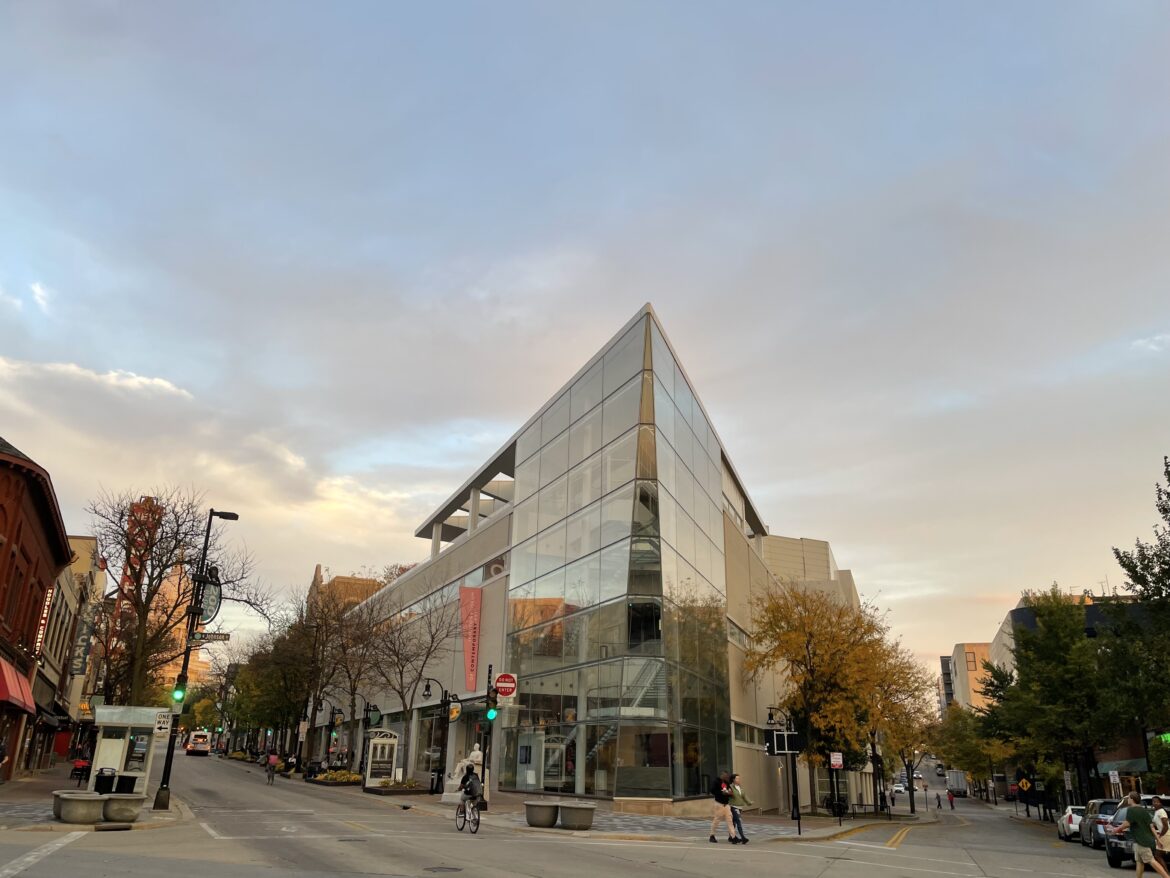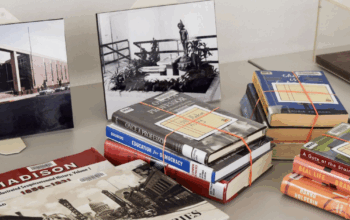Community members say the museum’s response to “Ain’t I A Woman?” Triennial artists isn’t enough
The biannual Gallery Night from the Madison Museum of Contemporary Art is seen by art patrons as one of the city’s most prominent showcases. On Friday, though, there may have been as much talk about a boycott of the event as there was of its showcased artwork.
Impacted artists are claiming a lack of ownership from the museum, known around Madison as MMoCA, following events of vandalism and theft that occurred during their Wisconsin Triennial “Ain’t I A Woman?” exhibition. In response, venues and artists forwent the traditional event and put their support behind an Alternative Artists’ Night instead.

“It’s really important that MMoCA in general understands that whether or not they think they really did anything wrong, the impact harmed the artists,” said Jennifer Bastian, the event’s main organizer. “Them not repairing this harm and being accountable has an impact across this whole city.”
The alternative Artists’ Night, which took place Oct. 28, is part of a larger effort to hold MMoCA accountable following the Triennial exhibit. Artists say the museum failed to support participating artists and promote the show, which featured work from artists identifying as Black women, femmes and gender-nonconforming individuals.
That frustration came to a peak on June 24, when Lilda Gee’s installation was defaced for 18 minutes and stolen after MMoCA left it unattended. Following MMoCA Director Christina Brungardt’s response to the events — which included asking Gee if guests could keep the artwork they had defaced — artists of the Triennial formed the group FWD: truth. They published an open letter that called for Brungardt’s termination and expressed concerns over the museum’s lack of accountability for the incidents.
In the time since, community members have stepped up to support Triennial artists. On Oct. 9, posters, flowers and flyers were spread outside the museum to celebrate the exhibition’s closing. A petition calling for MMoCA to apologize garnered 1,090 signatures, and 55 alumni, students and faculty of the University of Wisconsin–Madison Art & Art History departments signed a letter echoing the demands of the FWD: truth Collective.
For Triennial artist Emily Leach, seeing the outpouring of support has been a “kaleidoscope of emotions.”

“It’s been incredibly validating to hear that the community is listening to the content of our concerns,” Leach said. “That being said, I am bowled over by sadness. To continue to see how the museum refuses to respond to us is really painful.”
Another community-led effort was the Sept. 20 “Black Artists Speak” panel, during which impacted Triennial artists, former MMoCA employees and Madison female artists spoke about the art community’s underlying issues of racism. According to FWD: truth, MMoCA was supposed to host the panel as part of the Triennial exhibit, but it was repeatedly postponed, leading artists to host the event on their own terms.
UW-Madison junior Grace Ruo spoke during the panel about her experience as an MMoCA intern over the summer. She said she didn’t feel safe or supported following the executive board’s handling of the vandalization of Gee’s art.
 “Black artists have been visible in Madison. They’ve been pushing their message. It’s just a matter of the resources available,” Ruo said “I think these conversations are necessary, but further than that, I think spaces are necessary. I think commissions are necessary for artists of color.”
“Black artists have been visible in Madison. They’ve been pushing their message. It’s just a matter of the resources available,” Ruo said “I think these conversations are necessary, but further than that, I think spaces are necessary. I think commissions are necessary for artists of color.”
The panel occurred five days after MMoCA published a “statement on moving forward” in which it apologized for damage incurred to Gee’s artwork, but called accusations of institutional racism over its handling of the situation “inappropriate and unfounded.” It also shared a plan for a truth and reconciliation project, an initiative in which a visual anthropologist will look to address the incidents surrounding the Triennial exhibit and MMoCA’s underlying racism. The project started in September and could last up to six months, the statement said.
“We are hopeful that an in-depth journey of listening, learning and engaging with museum and community stakeholders in Madison will spark healing opportunities among artists, staff, museum attendees and the board that allow us all to build an anti-racist museum,” the statement read.
MMoCA declined to comment further on its truth and reconciliation plan.
Affected artists, however, said the project was not enough, stating on FWD: truth that MMoCA did not notify the Triennial artists of their statement, or involve them in its creation.
Leach, who withdrew her work from the exhibition in late August, expressed concern over the plan’s lack of an open forum with impacted artists and its decision to bring in an out-of-state anthropologist.
“The fact that the artists were not included in that initial publication of this letter announcing this truth and reconciliation project seems that it is not necessarily around the issues that we have offered, and that it is mostly about the response to negative press, frankly, more than it is about institutional accountability and learning,” Leach said.





